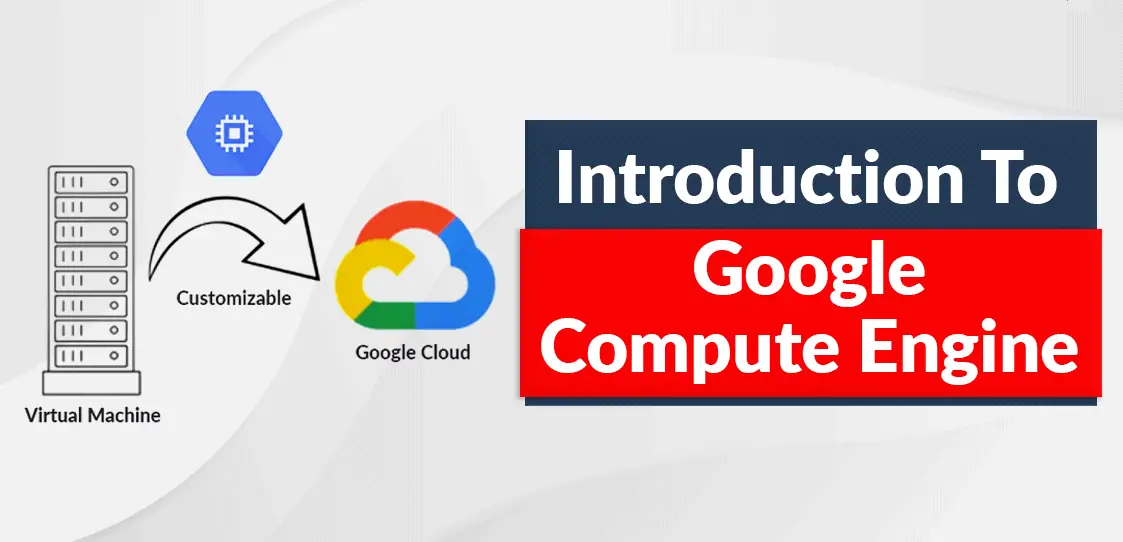Google Compute Engine (GCE) is a cloud computing service provided by Google that enables users to run virtual machines (VMs) on Google’s infrastructure. It allows users to create and manage VMs, as well as other resources, such as disks and networks. This article provides a comprehensive overview of GCE, including its features, benefits, and use cases.
Key Features of Google Compute Engine
Scalability
One of the key features of GCE is its scalability. It allows users to easily scale their VMs up or down as needed, based on the demands of their applications. This means that users can quickly add more resources to their VMs when they need to handle increased traffic, and then scale back down when traffic subsides.
Customizability
GCE also offers a high degree of customizability. Users can choose from a range of machine types, with varying amounts of CPU, memory, and other resources. They can also choose from a variety of operating systems and software stacks, allowing them to tailor their VMs to their specific needs.
High Performance
GCE provides high-performance computing resources that are designed to handle the most demanding workloads. It uses Google’s fast and reliable network infrastructure to ensure that data is transmitted quickly and reliably between VMs and other resources.
Security
GCE provides a range of security features, including network isolation, identity and access management, and encryption at rest and in transit. This ensures that users’ data and applications are protected from unauthorized access or disclosure.
Benefits of Using Google Compute Engine
Cost-Effective
One of the main benefits of using GCE is its cost-effectiveness. It offers a pay-as-you-go pricing model, which means that users only pay for the resources they use. This allows users to reduce their infrastructure costs, while still having access to high-performance computing resources.
Reliability
GCE provides a highly reliable infrastructure, with a 99.99% uptime SLA. This ensures that users’ applications are always available, even in the event of hardware failures or other issues.
Global Availability
GCE is available in multiple regions and zones, allowing users to deploy their applications closer to their customers for improved performance. This also provides users with the ability to design their applications for high availability and disaster recovery.
Use Cases for Google Compute Engine
Web Applications
GCE is well-suited for hosting web applications, as it provides high-performance computing resources and a range of customization options. It also allows users to easily scale their applications up or down as needed, based on changing traffic patterns.
Big Data Processing
GCE provides high-performance computing resources that are ideal for big data processing. It offers a range of data storage and processing options, including Google Cloud Storage and BigQuery, which can be used to store and analyze large datasets.
Gaming
GCE is also well-suited for gaming, as it provides high-performance computing resources and a low-latency network. This allows for fast and responsive gameplay, even for graphics-intensive games.
Conclusion
Google Compute Engine is a powerful and flexible cloud computing service that provides users with access to high-performance computing resources. It offers a range of features and benefits, including scalability, customizability, and security, as well as a pay-as-you-go pricing model. Its global availability and reliability make it an ideal choice for a range of use cases, including web applications, big data processing, and gaming.
FAQs
- What is Google Compute Engine?
Google Compute Engine is a cloud computing service provided by Google that allows users to run virtual machines on Google’s infrastructure.
- What are the key features of Google Compute Engine?
The key features of Google Compute Engine include scalability, customizability, high performance, and security. It allows users to easily scale their VMs up or down as needed, choose from a variety of machine types and software stacks, provides high-performance computing resources and uses Google’s reliable network infrastructure to ensure fast data transmission, and offers a range of security features, including network isolation, encryption, and identity and access management.
- What are the benefits of using Google Compute Engine?
The benefits of using Google Compute Engine include cost-effectiveness, reliability, and global availability. It offers a pay-as-you-go pricing model that allows users to reduce infrastructure costs while still having access to high-performance computing resources. It also provides a highly reliable infrastructure, with a 99.99% uptime SLA, and is available in multiple regions and zones, allowing users to deploy their applications closer to their customers for improved performance.
- What are some use cases for Google Compute Engine?
Some use cases for Google Compute Engine include hosting web applications, big data processing, and gaming. It provides high-performance computing resources and customization options that make it well-suited for hosting web applications. It also offers a range of data storage and processing options that are ideal for big data processing. And, it provides a low-latency network that is well-suited for gaming.
- How does Google Compute Engine compare to other cloud computing services?
Google Compute Engine is known for its high-performance computing resources and its flexibility in terms of customization. It also offers a range of data storage and processing options that are ideal for big data processing. Compared to other cloud computing services, it may be a better fit for users who need to run compute-intensive workloads or who require a high degree of customization. However, pricing and specific features may vary among different cloud computing providers, so it’s important to evaluate different options based on specific needs and requirements.
